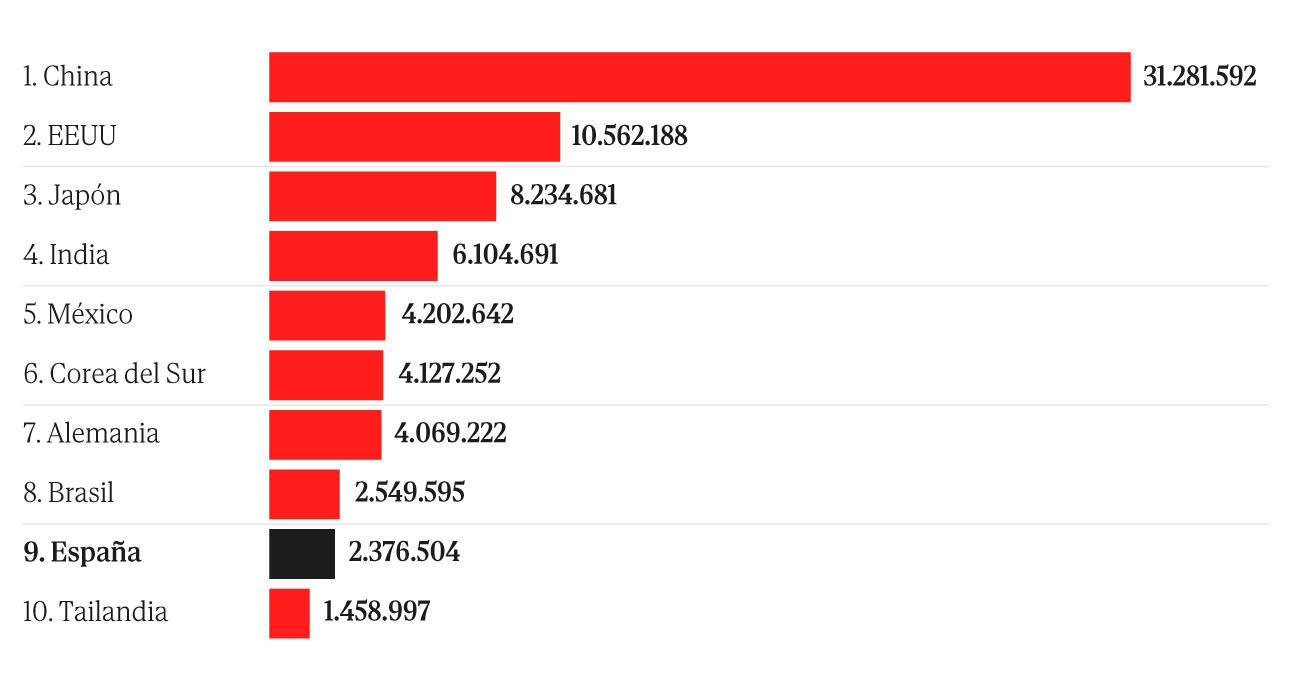The news came as a surprise when almost everyone was going on vacation. On July 22, 2022, the Volkswagen Group ousted its CEO, Herbert Diess, who had three years left on his contract. The reasons had a lot to do with the plan to transform the old VW into a company with a very different culture. His efforts to reduce costs and jobs, especially in Germany, led to clashes with the powerful unions in the company. His push to become leaders in electrification and software also did not yield the desired results. In fact, he always showed admiration for Tesla and Elon Musk. He was replaced in September of that year by Oliver Blume, who earned his stripes at Porsche, which became the jewel in the crown and had a successful IPO that same year. Nearly three years later, its shares are now worth half as much, and Blume continues to try to bring order to Germany while seeking the right direction for electrification and electronic self-sufficiency. Diess can be considered the first major casualty of the turbulent times facing the global automotive industry, particularly in Europe, with several challenges. On one hand, the demands of the EU, as naive as they are idealistic. On the other hand, the slowdown in the electric vehicle market, where hundreds of billions have been invested to alleviate the dominance of Chinese brands in costs, technology, and battery materials. For the latter, the Old Continent has become a land of conquest due to its profitability and lax entry barriers compared to the widespread tariffs imposed by the Trump Administration. This also applies to European cars, by the way. "This industry will change more in the next few years than in the last 100" is the mantra repeated by the top executives in the sector. Those who remain, as no other industrial sector is losing key figures like this one.
1. Herbert Diess (Volkswagen). Led the group between 2018 and 2022. He was determined to transform the business and culture of the company but ended up losing the trust of shareholders. 2. Luca de Meo (Renault). After 33 years in the automotive sector, it seems he has grown tired. A lover of great challenges, he moves to the luxury world to lead Kering, the owner of Gucci. 3. Carlos Tavares (Stellantis). Revived PSA and Opel and led Stellantis to record figures. But this came at the expense of straining the value chain, shareholders, and the French and Italian governments. 4. Wayne Griffiths (Seat / Cupra). Neither he nor anyone else has disclosed the reasons for his sudden dismissal after five successful years leading the VW Group company. 5. Jim Rowan (Volvo). He was hired in 2022 for his technological profile. However, the transformation he was supposed to undertake failed, and Volvo had to bring back its former CEO. 6. Makoto Uchida (Nissan). Apart from the serious crisis facing the Japanese company, his refusal to the conditions of a merger with Honda accelerated his departure. He had been CEO of Nissan since 2019.
The choice of De Meo, who took on the role of CEO in July 2020, in the midst of a pandemic, was a success. Although Renault recorded historic losses that year, 8 billion, and two years later had to exit Russia, its second-largest market after France, in 2023 it achieved a net profit of nearly 2.2 billion. And in the past fiscal year, it was the only major European manufacturer that did not have to issue a profit warning to protect its financial results. Renaulution was the name given to a transformation plan based on four main pillars: separating the electric business from combustion; focusing on hybrids, mainly manufactured in Spain; learning from Chinese manufacturers instead of confronting them to reduce costs and development times; and prioritizing profitability over volume. "The work is done. We have achieved what many believed impossible. I leave behind a transformed company, ready for the future, to apply my experience to other sectors and embark on new adventures," he said in his farewell. His departure is a blow to the prestige of an industry that loses another great talent, also weary of the daily struggle. With markets that he always said undervalued a traditional manufacturer - Renault's stock has fallen by 16% this year, half of it just since his departure - and with Brussels. Although the EU has finally decided to protect a strategic sector. Tariffs on Chinese electric vehicles, the easing of Euro 7 and CO2 emissions standards, and the Action Plan presented in March are responses to this.
